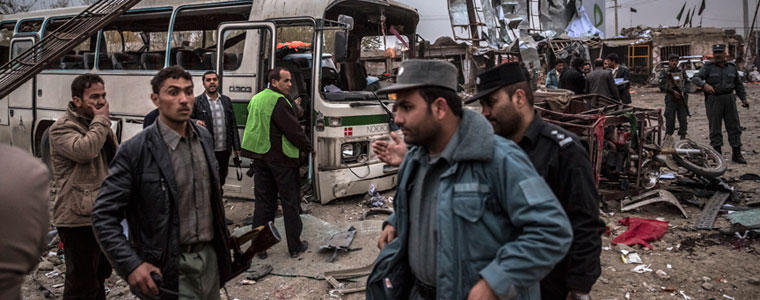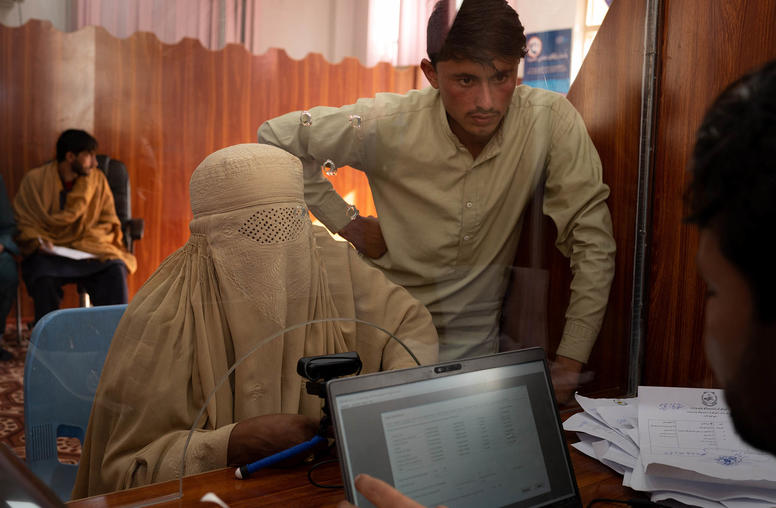This week will be momentous for Afghanistan’s future. A Loya Jirga, an informal national assembly, will convene to accept -- or not -- a Bilateral Security Agreement (BSA) with the U.S. that will govern the role of any remaining American troops after most international forces withdraw at the end of next year.

What was expected to be a predictable bit of Afghan political theatre to ratify an agreement that everybody believed President Hamid Karzai ultimately wanted now looks less certain. The selling of the agreement to the Afghan public and politicians has been badly handled, and the opposition to it has been both well-organized and underestimated by the international community.
What is at stake is clear. Maintaining an international troop presence is the best way to ensure sustained international financial support for Afghanistan, not only for the country’s nascent security forces but also for basic items like government salaries. An agreement allowing a U.S. troop presence will pave the way for other countries that have participated in the NATO-led coalition in Afghanistan to craft similar accords with the Afghan government to bolster the final remaining force.
The failure to secure a U.S. agreement will give countries the excuse they are looking for to completely withdraw their troops. That, in turn, will make it easier for them to abandon their pledges to provide other kinds of financial support.
Karzai has the authority to approve the security agreement but decided to subject it to the judgment of this unofficial national assembly and to the approval of Parliament. He has, furthermore, not taken a stand on it himself. Instead, The New York Times recently reported that he objects to a provision allowing U.S. Special Forces to carry out searches of Afghan homes. This is a legitimate concern but one that was thought to have been settled during the negotiation. Karzai’s last-minute resurrection of the issue has perplexed everyone who assumed that the president fundamentally wanted the pact. It put the adoption of the BSA in unnecessary jeopardy.
The presentation of the draft deal to parliament was notable for the vigor of parliamentary critics. In particular, they objected to the provision that U.S. military personnel serving in Afghanistan not be subject to Afghan law. This is a non-negotiable provision for the U.S. in similar agreements with dozens of other countries and applies to all American forces stationed overseas. It was the provision that doomed the prospect of keeping U.S. troops in Iraq, which has since descended into renewed violence on a scale unseen since the height of the insurgency there.
In Afghanistan, even though the security agreement had been in negotiation for more than a year, it’s clear that little effort was made either by Karzai’s government or by the U.S. side, to prepare Afghan lawmakers for their consideration of such a vital and complex document.
As for the Jirga, many Afghans have long believed that the assembly would decide what Karzai wanted it to decide, as previous Jirgas had. But there are some perplexing differences with the preparation of this one. In particular, Karzai has overtly invited Taliban representatives and others who oppose the BSA. There are no formal rules for convening or managing Jirgas, but they are generally seen as ratifying bodies rather than deliberative venues. A Jirga where 90 percent of the outcome is not pre-determined, it is often said, is a recipe for chaos.
BSA opponents have organized street demonstrations in Kabul and in Jalalabad, and convened their own Jirga on Nov. 11, predictably rejecting the agreement to chants of “death to America.” One of that meeting’s conveners was Haji Ahmad Farid, a former parliamentarian and a member of Gulbuddin Hekmatyar’s Hezb-i-Islami militant group. He taunted Karzai: “You convene a Jirga of 3,000 – here is our Jirga of 3,000 … If you bring 10,000 people to endorse the BSA, I will bring 10,000 people [to reject it].”
It is troubling that, while there is organized opposition to the agreement, there apparently is no organized support for it. The political elites in Kabul who have benefitted from international financial support generally see the security agreement as crucial to the future of the Afghanistan they envisage. But what public debate has occurred has mainly highlighted the views of the opponents, who appeal to well-known sentiments of national independence.
It’s possible that Karzai is seeking a Jirga that agrees in principle but that gives him new negotiating instructions on either the house raids or the question of immunity. This might extend his leverage over the international community, but it will test the already thin patience of the U.S., as well as prolong the uncertainty over Afghanistan’s future well into the electoral season. Karzai, who cannot run in presidential elections set for April under the Afghan constitution’s term limits, has pledged to step down once a successor is named.
In many ways the election has been premised on the existence of an Afghan government beyond 2014 that would be supported by the international community. Who will want to preside over an Afghanistan that lacks the international support that pays the salaries of government officials, the army and police?
Many commentators in Kabul have said that Karzai is afraid of being portrayed as Shah Shujah, the Afghan king who was deposed in the mid-19th century after having been put on the throne by the British. The tale has been revived by the recent widely-read book by William Dalrymple, Return of a King. For this reason, Karzai may not want to shoulder alone the responsibility for establishing a long-term U.S. presence.
He might want to consider another king’s tale. The reformist King Amanullah in the early 20th century declared his independence from Great Britain and, in so doing, lost the subsidies that Britain provided for his army. A tribal revolt that rejected Amanullah’s reforms managed to depose him in 1930, in part because there was no army left to defend him.
That is a problem for Karzai and a risk he is perhaps willing to accept. The problem for the U.S. and its prestige is that a full withdrawal by the end of 2014 in the absence of a BSA will look very much like a Taliban victory.
The shape of Afghanistan’s post-2014 future begins this week. The well-planned transition process looks much shakier than it should at this point.
Scott Smith is USIP’s director of Afghanistan and Central Asia programs. He is editor, with Moeed Yusuf and Colin Cookman, of the forthcoming book Getting It Right in Afghanistan (December 2013, United States Institute of Peace Press).



